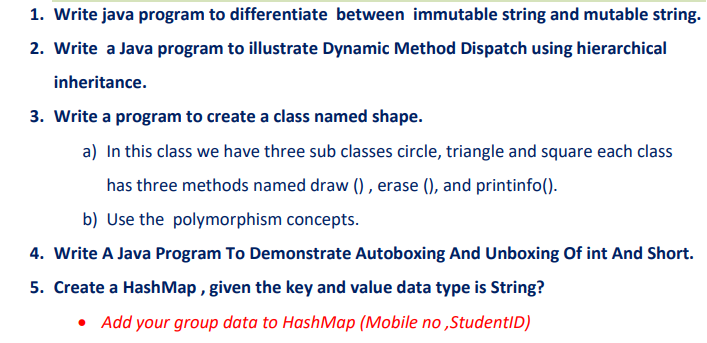Exploring the Advantages of Unalterable Strings in Modern Programs Paradigms
In the world of contemporary programming paradigms, the principle of unalterable strings stands as a foundation of robust software application growth. By embracing unalterable strings, designers can ensure improved data stability, improved thread safety and security, simplified debugging procedures, raised safety and security measures, and efficient performance optimization.
Boosted Information Honesty

By stopping the modification of string things, immutability gets rid of the danger of unintentional modifications to the information they hold. This not only enhances the safety and security of the details however likewise enhances the integrity of the code that relies upon these strings.
Immutability also sustains safer multithreading environments, as concurrent access to immutable strings does not present the risk of data corruption with simultaneous modifications. This residential property simplifies the process of managing strings in identical programs circumstances.
Fundamentally, immutability works as a protective shield around the data saved within strings, improving their stability by ensuring that once defined, their worths remain the same throughout the program's implementation.

Improved String Safety And Security
Immutable strings boost the string safety of programs by ensuring that once a string item is created, its value can not be customized. This residential property eliminates the risk of simultaneous strings trying to customize the exact same string simultaneously, which could lead to data corruption or irregular states in the program - Why are strings immutable in Java?. In a multi-threaded atmosphere, where several strings gain access to and control information at the same time, the immutability of strings offers a degree of safety and security by assuring that the data remains unchanged throughout its lifecycle
Simplified Debugging Processes
Offered the boosted thread security facilitated by immutable strings, a substantial advantage emerges in the realm of simplified debugging processes. Unalterable strings, when produced, can not be modified, making it simpler to trace the circulation of data and determine the resource of pests in a program. This immutability makes certain that strings remain regular throughout the implementation of the program, reducing the likelihood of unexpected changes that could bring about errors.
When debugging with mutable strings, designers commonly encounter problems where a string's value is customized accidentally, making it testing to pinpoint the origin of an insect. Nonetheless, with immutable strings, the information remains unmodified, enabling developers to focus on assessing the real logic of the code as opposed to locating where and when a string was changed improperly.
Furthermore, unalterable strings streamline the debugging procedure by enabling simpler recreation of bugs. Because immutable strings do not alter state, programmers can recreate and research pests a lot more successfully, leading to quicker recognition and resolution of issues within the codebase. This streamlined debugging operations inevitably adds to higher software quality and boosted overall growth performance.

Boosted Safety And Security Procedures
Enhancing information security and fortifying system honesty, the use of unalterable strings in software program applications adds significantly to increased security see this measures. Immutable strings, once created, can not be modified, offering a critical protection versus harmful tampering or unapproved accessibility. By guaranteeing that sensitive data saved in strings stays unaltered throughout the program's implementation, the risk of information breaches or injection attacks is considerably decreased. Why are strings immutable in Java?. Immutable strings additionally play an important role in avoiding typical safety susceptabilities such as buffer overflows and SQL shot strikes, as attempts to adjust string information at runtime are inherently limited.
Additionally, the immutability of strings enhances the predictability of program actions, making it easier to confirm inputs and protect against unexpected adjustments that can compromise protection. This predictability simplifies the process of bookkeeping and confirming code, enabling developers to determine potential safety technicalities better. In general, including immutable strings right into software application advancement practices not just improves the toughness and reliability of applications but likewise strengthens their resilience against protection threats.
Effective Efficiency Optimization
When dealing with mutable strings, procedures like concatenation or substring development often result in the production of new string objects, leading to memory expenses and increased handling time. By enabling strings to have a peek at this site continue to be continuous and unchangeable, immutable strings help with much better memory management and caching chances, inevitably improving the general effectiveness of the software program.
Since unalterable strings can not be customized as soon as created, they can be shared across strings without the risk of unforeseen adjustments, decreasing the demand for synchronization mechanisms and boosting concurrency. Immutable strings simplify debugging procedures as developers can rely on that a string's worth will certainly continue to be constant throughout the program's execution, getting rid of possible errors triggered by mutable state adjustments.
Conclusion
To conclude, the benefits of using immutable strings in modern-day shows standards can not be overstated. Boosted information honesty, enhanced thread security, simplified debugging procedures, raised security steps, and efficient efficiency optimization all add to the total effectiveness of programming jobs. By integrating immutable strings into programming methods, designers can take advantage of an extra dependable and durable codebase.
Immutability, a crucial feature of strings in shows languages such as Java and Python, makes certain that as soon as a string things is created, it can not be altered or changed.Immutable strings enhance the string security of programs by guaranteeing that once a string things is produced, its worth can not be customized. Immutable strings also play a crucial role in avoiding common safety vulnerabilities such as barrier This Site overflows and SQL shot attacks, as efforts to control string information at runtime are naturally restricted.
By allowing strings to stay stable and constant, unalterable strings help with much better memory administration and caching opportunities, inevitably boosting the total effectiveness of the software.
Unalterable strings simplify debugging processes as programmers can trust that a string's worth will certainly continue to be consistent throughout the program's implementation, removing possible errors caused by mutable state modifications.